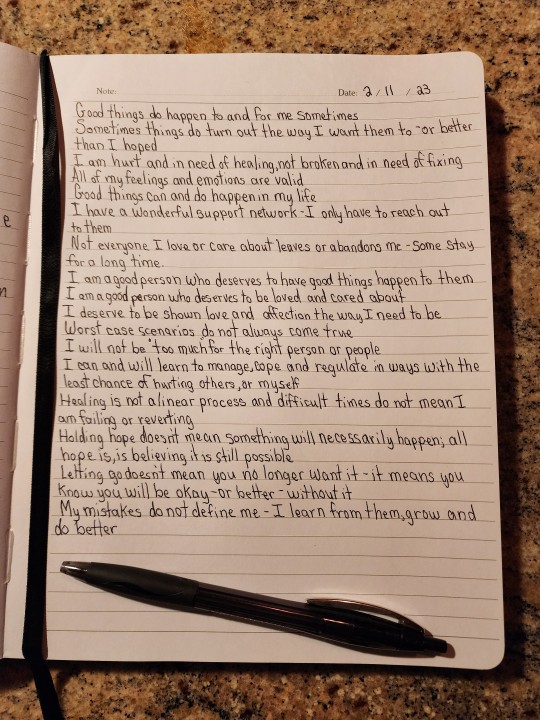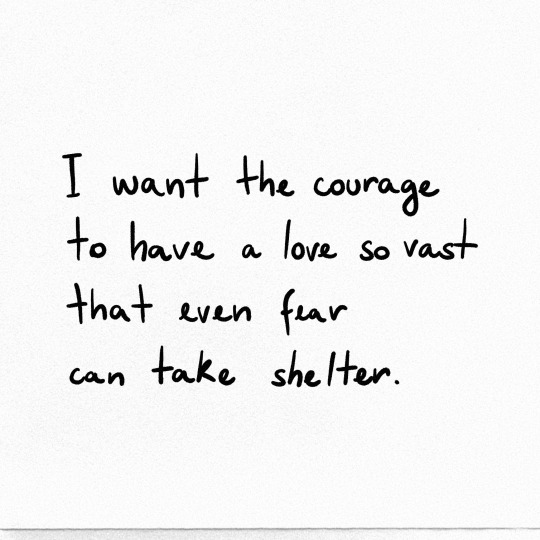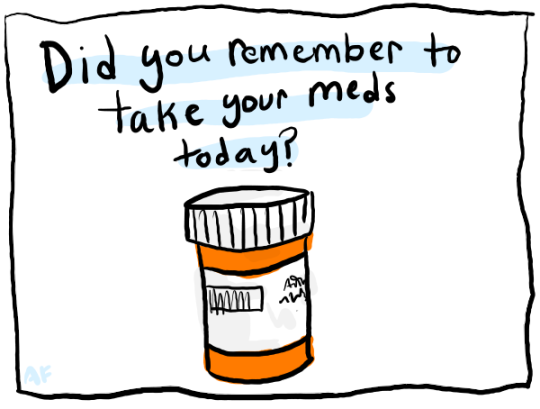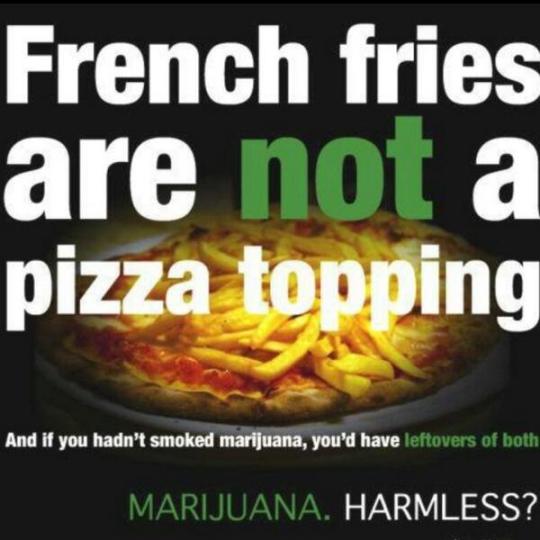Text
“effective communication requires clear open lines on both ends, no judgment when honesty is trying to find a safe landing spot, ears that welcome vulnerability with open arms, it requires becoming fluent in each others dialect regardless of how uncomfortable the truth may sound.”
— iambrillyant
418 notes
·
View notes
Text

*hitting my brain with a stick* let! me! enjoy! things! again!
6K notes
·
View notes
Text
“you’re so sweet!” thank you i have abandonment issues
228K notes
·
View notes
Text
I asked my kids if they’d prefer a secret garden or a secret library and my son shook his head and was like “I don’t trust the secret gardeners and librarians”
179K notes
·
View notes
Text
“Today I’m happy because I dreamed about you, but tomorrow I’ll cry missing your touch.”
— Vítor Hugo Mota
116 notes
·
View notes
Text
This journey has been brutal. But I'm still standing. Even with shaking hands and tears just under the surface, I'm still standing. Do better be better has been my mantra, my solace and my guide. Now it's finally on my skin, in my own handwriting. It gets me through the bad days and reminds me how far I've come on the good days. However few and far between those are at the moment. Healing isn't linear, nor easy, but it is worth it.


0 notes
Text
changing every “i should have known better” to “i know better now”. i will not judge past versions of me through the lens of who i am now.
44K notes
·
View notes
Text

I feel like my mind can make a hell out of any little negative emotion. And usually it’s because there’s some kind of aversion present, a desperate urge to banish or numb the feeling.
This little poem is a reminder to face difficult emotions with kindness and ease.
3K notes
·
View notes
Text
writing is a form of exorcism to me. I am being haunted by my own silly little characters and the only way to free myself from my torment is to pass them onto my poor, dear readers
2K notes
·
View notes
Text
What are the signs that I’m recovering?
Effective recovery work leads to an ongoing gradual reduction of emotional flashbacks. Over time we become more and more proficient at managing them and alleviating unnecessary states of activation; this in turn results in flashbacks occurring less often, less enduringly and less intensely.
Another key sign of recovering is that the critic begins to shrink and lose its dominance of the psyche. As it shrinks, the user-friendly ego has room to grow and to develop the kind of mindfulness that more readily recognizes when the critic has taken over, which in turn allows us to more readily disidentify form or fight against its perfectionistic and drasticizing processes.
Another sign of recovering occurs as a gradual increase in our ability to relax - to resist overreacting from a triggered position, i.e., from an inappropriate fight, flight, freeze or fawn response; (See my article: “A Trauma Typology”). Moreover, there is an increase in our ability to use our fight, flight, freeze and fawn instincts in healthy non-self-destructive ways, so that we only fight back when under real attack, only flee when odds are insurmountable, only freeze when we need to go into acute observer mode, only fawn when it is appropriate to be self-sacrificing. Another way of describing this is that we have good balance between the polar opposites of fight and flight, i.e., we can vacillate healthily between asserting our own needs and compromisingly acquiescing to the needs of others. Moreover we can balance the polar opposites of flight and freeze, which in their moderate manifestations looks like a balance between doing and being, between sympathetic and parasympathetic nervous system arousal, between left and right brain processing.
Advanced recovery correlates with letting go the salvation fantasy that we will never have another flashback, and moving into an attitude of accepting the inevitability of a modicum of flashbacks. This attitude then allows us to easily recognize and quickly respond to them from a position of self-compassion, self-soothing and self-protection.
http://pete-walker.com/fAQsComplexPTSD.html
85 notes
·
View notes
Text
Reminder that bad trauma days look different for every abuse victim/survivor:
- Some people freeze, some can't stay still
- Some people can't cry, others can't stop crying
- Some people can't bear to be touched, others desperately need to be held
- Some people feel angry and defensive, others feel scared and defenseless
(Feel free to add on!)
And there's nothing wrong with your bad trauma days not looking the same as other people's, or not looking the same every single time. The things you experience during bad trauma days are yours to experience and nobody else's to dictate. There's no one correct way to live with trauma.
102 notes
·
View notes
Text
Emotional Flashbacks
Most people know that PTSD can cause flashbacks, in which the survivor re-experiences the traumatic event, sometimes seeing or hearing it play out all over again.
What a lot of people don’t realize is that flashbacks don’t always look like that. Especially if your trauma was in early childhood (meaning you no longer have actual memories of the event because you were too young) or if it was from repeated or long-term traumatic events, the flashback might not involve seeing or hearing anything.
Sometimes, people with trauma will have what is called an emotional flashback: this means that they re-experience the emotions of the traumatic event rather than the other sensory details. These emotional flashbacks are often strongly associated with Complex PTSD (C-PTSD).
In Complex PTSD: From Surviving to Thriving, Pete Walker writes:
Emotional flashbacks are sudden and often prolonged regressions to the overwhelming feeling-states of being an abused/abandoned child. These feeling states can include overwhelming fear, shame, alienation, rage, grief, and depression. They also include unnecessary triggering of our fight/flight instincts.
It is important to state here that emotional flashbacks, like most things in life, are not all-or-none. Flashbacks can range in intensity from subtle to horrific. They can also vary in duration ranging from moments to weeks on end where they devolve into what many therapists call a regression.
When I first read Walker’s book and learned about emotional flashbacks, I started thinking back to times when something relatively innocuous made me feel absolutely TERRIBLE–when the emotional reaction I had to something was either bizarre (it seemed like the “wrong” emotion to be feeling in that situation) or when my feelings were hugely outsized in relation to the actual issue.
I thought of the time when I was a teenager and an earwig crawled very close past my face in my room when my brother was there, and I begged him to kill it for me, and he refused, and I MELTED DOWN. I was terrified, in despair, angry… I probably acted like a five-year-old. And recalling that experience later, I knew that if I had been alone in the room, I just would have grabbed a shoe and killed it myself. I didn’t know why I had such an INTENSE reaction to such a relatively harmless experience.
I thought of the times when I was with a group of people and started telling a story and then partway through realized that nobody was listening to me. I thought of how SOUL-CRUSHING that experience was to me–how it made me feel like I was entirely alone in the world and would never be loved. I mean, it’s not a pleasant experience for anybody, but surely it shouldn’t have resulted in that kind of existential despair?
The first emotional flashback I really identified as such was one time when I got stuck at an intersection. A semi was trying to make a turn and didn’t do it right and got stuck right in the middle of this intersection. Nothing could get past him. People needed to back up to let him complete the turn, but they didn’t think they had room to do so. Long story short, I rolled down my window and helped the drivers get backed up enough that the semi was able to complete its turn and clear the intersection. I was satisfied and proud of myself for helping…. for about 45 seconds. And then suddenly, I was struck with this overwhelming WAVE of shame. I was SO EMBARRASSED. I thought that everybody involved in the incident must have thought I was such a show-off, and I must have hurt people’s feelings, and everybody must have been so mad at me! And I burst into tears. Thinking about it later, I knew that NOTHING that had happened in that situation should have led to me feeling ashamed or embarrassed. The emotion seemed inappropriate for the situation.
Learning to identify when you’re having an emotional flashback is hugely important for two reasons:
1. It can help you get a proper diagnosis, if you’ve been diagnosed with anxiety or depression or something and have never been evaluated for PTSD. Getting the proper diagnosis is the first step to getting genuinely helpful treatment.
2. As you learn to identify your emotional flashbacks while you’re having them (a process that takes time and practice!) you can learn to calm yourself and deal with them, and thus get out of them more quickly.
If you have been diagnosed with a mental health or mood disorder, it might be worthwhile to take some time to think back and decide if some of your intense experiences of depression, anxiety, panic attacks, shame, loneliness, sorrow, and despair might actually have been emotional flashbacks.
556 notes
·
View notes




